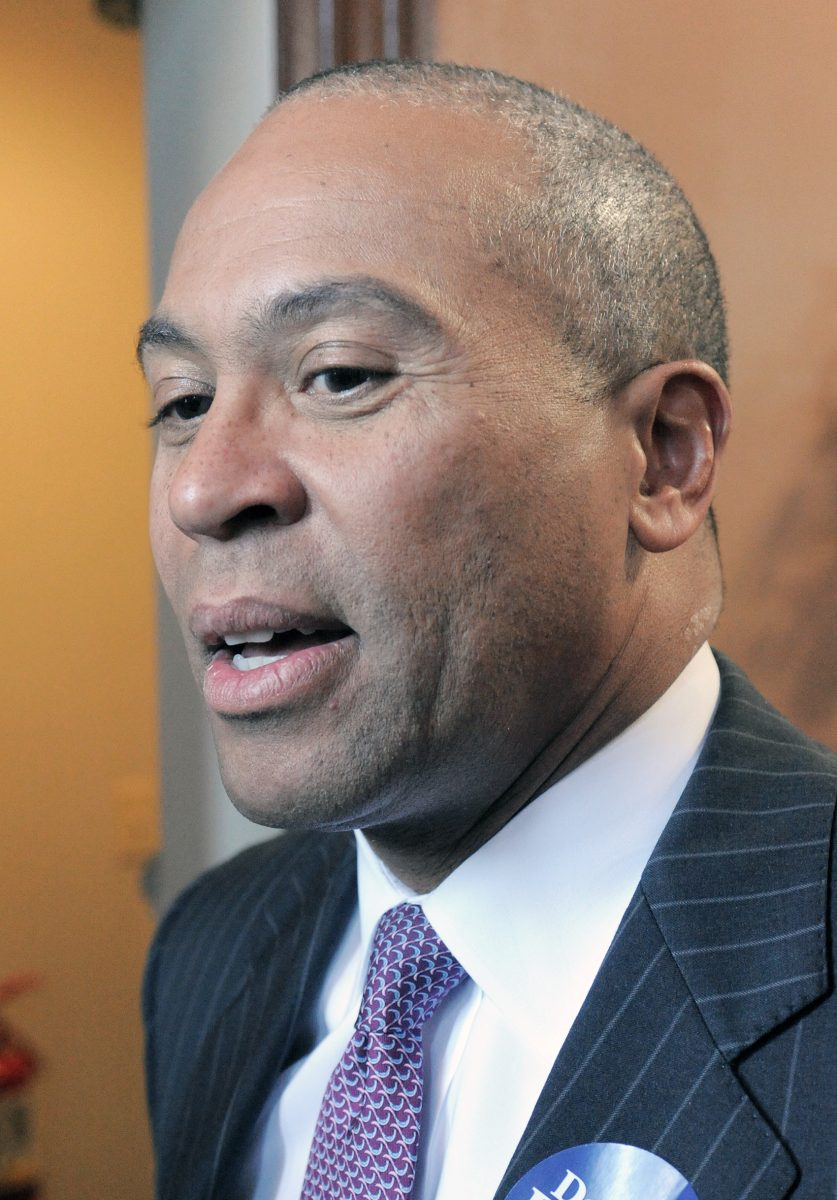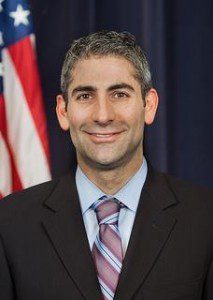BOSTON — Gov. Deval Patrick’s administration ordered nearly $200 million in immediate spending cuts yesterday while asking lawmakers to approve reductions in local aid and other accounts to help close a state budget shortfall.
The gap, currently estimated at $330 million, has been triggered by a number of factors including an automatic change in the Massachusetts income tax scheduled to take effect Jan. 1, Secretary of Administration and Finance Glen Shor said. The tax cut, from the current 5.2 percent to 5.15 percent, is expected to cost the state about $70 million over the final six months of the fiscal year.
Patrick exercised his authority to make $198 million in unilateral spending cuts in the executive branch of state government, Shor said.
“We have done our very best to protect investments that are critical to the commonwealth’s future and avoid negative impacts on the most vulnerable of our residents,” he said.
While much of the spending cuts will come in the area of health and human services, sensitive agencies such as the Department of Children and Families will not be affected, Shor said. State aid to public school districts known as Chapter 70, pre-kindergarten education and public higher education are among other unscathed programs.
The state’s total budget is $36.5 billion.
In a letter to state lawmakers yesterday, Patrick said he was filing legislation proposing a $25.5 million reduction in unrestricted state aid for cities and towns, along with cuts of 1.5 percent for most state agencies that are not part of the executive branch and therefore cannot have their budgets reduced without legislative approval.
The House and Senate are not scheduled to resume formal sessions until January, when a new governor, Republican Charlie Baker, takes office.
Shor said the proposed cuts were not discussed with representatives of the incoming administration.
“Governor-elect Baker hopes local aid is the last place the legislature would ever look to for cuts because Massachusetts cities and towns deserve a dependable source of funding for crucial projects,” said Baker’s spokesman, Tim Buckley.
Andrew Bagley, director of research and public affairs for the Massachusetts Taxpayers Foundation, an independent budget watchdog, said he was surprised by the proposed local aid reduction.
“I think the (local aid) cuts are something that are going to impact the cities and towns, and they are obviously not going to be happy halfway through the fiscal year trying to figure out how to manage that,” Bagley said.
He also noted lawmakers historically have been reluctant to make cuts that would affect communities in their districts.
Shor said there was a need for “shared sacrifice” to address the shortfall.
“We are asking cities and towns to help us in solving the state budget gap,” he said.
Several independent state agencies have agreed to forego additional appropriations that were promised to them in an economic development bill passed earlier this year, Shor said.
In addition to the automatic income tax cut, the administration has said the shortfall also was being driven by lower-than-expected returns on state fees and other non-tax revenues.
The foundation has projected an even larger budget gap of $500 million to $600 million, Bagley said, partly due to increased state employee insurance and retirement costs.
In Westfield, two public policy questions were posed to city residents earlier this month asking whether or not they’d support requesting the city’s representatives in Boston to introduce and vote for legislation to return local aid and road maintenance funding to what it was in the fiscal year 2007.
“It’s a matter of priorities. (The state) created that $12.5 billion transportation bond bill and the Governor (Deval Patrick) only allocated $200 million for road maintenance for the entire state,” said Westfield City Councilor Dan Allie, who gathered the signatures to place the questions on the ballot. “In Westfield, the budget to fix 400 miles of roads is $1.3 million, which will fix two miles.”
The questions both passed and Westfield state Representative John Velis, who has been a staunch supporter of increasing local aid to the Commonwealth’s 351 cities and towns, has pledged to vote against the proposed $25.5 million decrease.
“Local aid is the lifeblood of our communities and to hit them in municipalities with further local aid cuts would be disastrous,” said Velis this morning. “Not only for school budgets and roads. Additionally, we all know the correlation between local aid being cut and property taxes going up.”
“Any vote that comes up to cut local aid further is an absolute no vote by me,” Velis said. “Obviously, we all know there’s strength in numbers, so it’s about linking up with all of the legislators who aren’t from eastern Massachusetts, bringing everyone together.”
“We’ve all heard from our mayors and our city councils, we need to go together and tell our colleagues that this is killing us, said Velis. “Particularly in the western part of the state where, quite frankly, we get ignored on the allocation of funds.”
While concerned about the potential for cuts in local aid, Westfield Mayor Daniel M. Knapik said that the city will take a wait-and-see approach regarding Patrick’s proposal.
“He’s got to get that through the legislature and I’m going to imagine he’s going to meet some resistance. It’s been proposed but it’s not a done deal,” said Knapik. “For those cities and towns that have set their tax rate, that leaves them no other option but cut services and dip into their rainy day accounts.”
Knapik stated that Westfield has not set its tax rate.
“At the city council meeting tonight they’re going to have a hearing on the tax shift. However, I haven’t sent orders about what we’re going to raise for the levies.” he said. “For cities and towns, unrestricted local aid is still $500 million less than when we were in the recession.”
“In Westfield, that translates totally in state aid to somewhere between $4-5 million less than there was in ’08 and ’09,” Knapik said. “It’s fair to say that cities and towns have done enough to help the state out of their fiscal situation and should be held harmless.”
“I’m disappointed that he’s chosen an area to make cuts that are near and dear to my heart in local aid,” said state Sen. Don Humason, Jr., R-Westfield. “In my humble opinion, Gov. Patrick has always had an issue about local aid.”
“I’m also reminded nine years ago that Gov. (Mitt) Romney made cuts on his way out the door to leave Gov. Patrick a balanced budget, as required in the state constitution,” said Humason. “So this falls in the lap of Charlie Baker when he assumes the governorship in January. My hope is that we, the legislature, can work with the Governor to restore those cuts immediately.”



